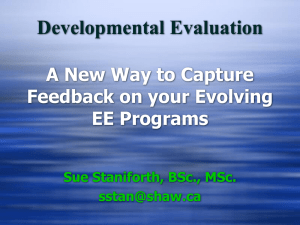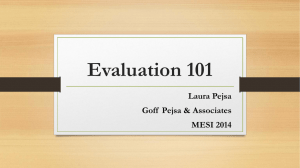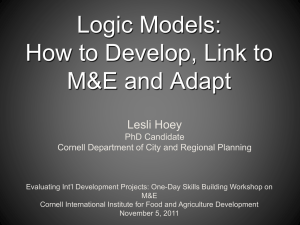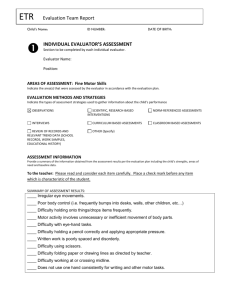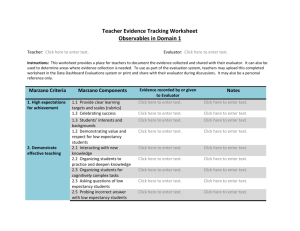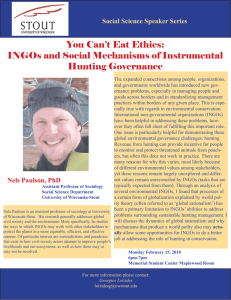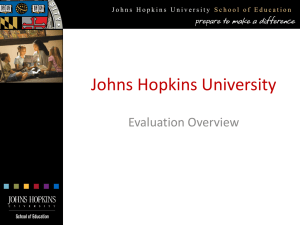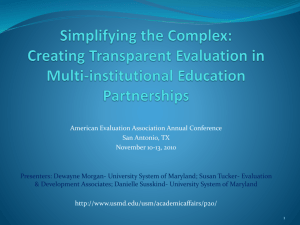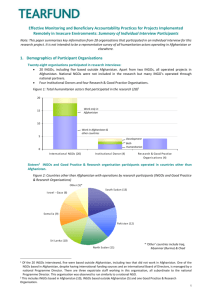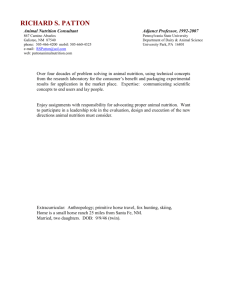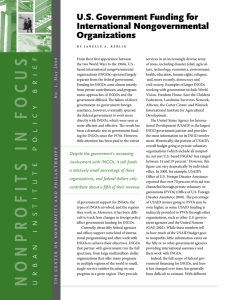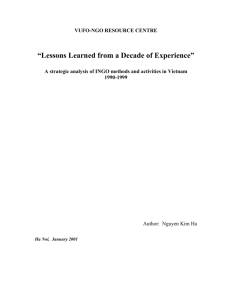AEA Think tank 2015 Developmental Evaluation approach to
advertisement
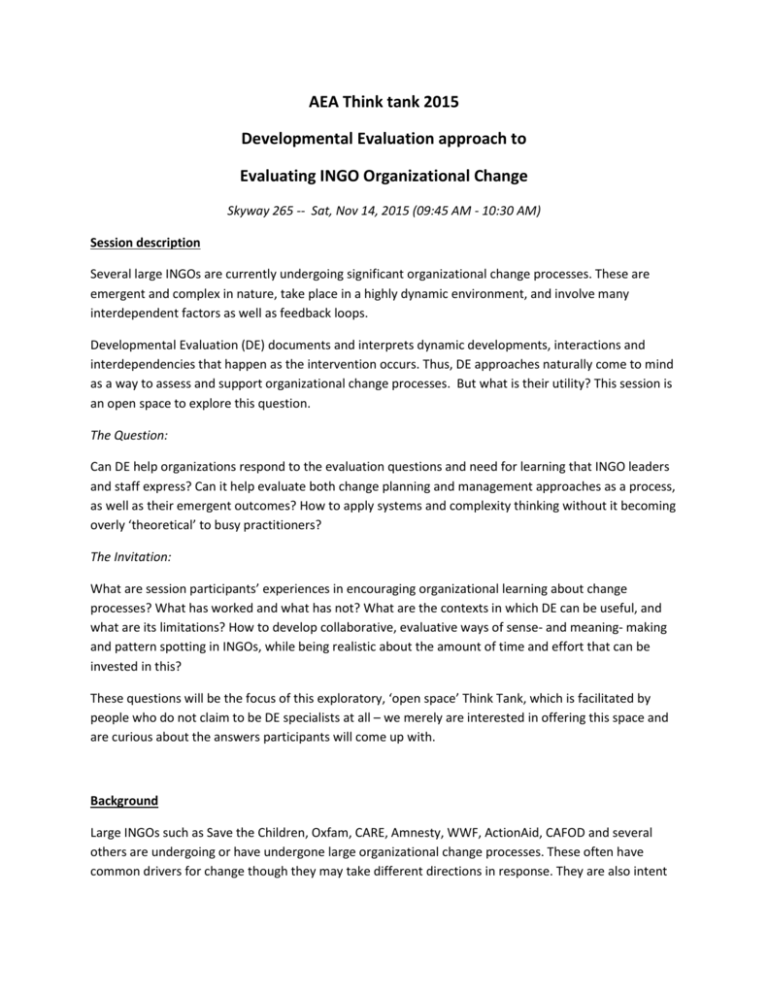
AEA Think tank 2015 Developmental Evaluation approach to Evaluating INGO Organizational Change Skyway 265 -- Sat, Nov 14, 2015 (09:45 AM - 10:30 AM) Session description Several large INGOs are currently undergoing significant organizational change processes. These are emergent and complex in nature, take place in a highly dynamic environment, and involve many interdependent factors as well as feedback loops. Developmental Evaluation (DE) documents and interprets dynamic developments, interactions and interdependencies that happen as the intervention occurs. Thus, DE approaches naturally come to mind as a way to assess and support organizational change processes. But what is their utility? This session is an open space to explore this question. The Question: Can DE help organizations respond to the evaluation questions and need for learning that INGO leaders and staff express? Can it help evaluate both change planning and management approaches as a process, as well as their emergent outcomes? How to apply systems and complexity thinking without it becoming overly ‘theoretical’ to busy practitioners? The Invitation: What are session participants’ experiences in encouraging organizational learning about change processes? What has worked and what has not? What are the contexts in which DE can be useful, and what are its limitations? How to develop collaborative, evaluative ways of sense- and meaning- making and pattern spotting in INGOs, while being realistic about the amount of time and effort that can be invested in this? These questions will be the focus of this exploratory, ‘open space’ Think Tank, which is facilitated by people who do not claim to be DE specialists at all – we merely are interested in offering this space and are curious about the answers participants will come up with. Background Large INGOs such as Save the Children, Oxfam, CARE, Amnesty, WWF, ActionAid, CAFOD and several others are undergoing or have undergone large organizational change processes. These often have common drivers for change though they may take different directions in response. They are also intent on learning from their change processes both in terms of how effectively they are being managed and led, as well as their outcomes as compared to what was intended. What’s Developmental Evaluation? DE is designed to support social innovation and adaptive management and therefore seems very suitable to support transformative processes (Patton, 2011). DE, by asking evaluative questions, can apply evaluative logic and gather real time data to inform ongoing decision making and adaptation. The evaluator is part of change management teams whose members collaborate to conceptualize, design and test interim change directions, objectives and approaches in a process of continuous development, adaptation and experimentation toward a long term change objective. In DE, evaluators are sensitive to unintended consequences and side effects and can infuse the change management/championship team with evaluative questions, thinking and data and identify relevant organization system-level data that can inform strategic reflection on progress. Practically, DE can be described the following ways: the evaluator supports the implementing team their task is to bring evaluative thinking and data to bear as implementing team conceptualizes & tries out new approaches the evaluator supports periodic sense-making processes and action-oriented decisions in response to changing internal and external conditions (including among others organizational culture change trends), lessons learned and emerging needs of participants as the change agenda evolves in focus and clarity the evaluator tailors the methods to track emergent and changing realities and change agendas, illuminating reality and feeding back meaningful findings in real time to support innovation DE can draw on multiple data collection and evaluation techniques such as staff engagement or satisfaction surveys (QUANT) and QUAL methods such as Most Significant Change, Outcome Mapping, Rich Pictures, Appreciative Inquiry, Timelines, Key informant interviews, etc. the evaluator has to balance themselves on the insider-outsider continuum (‘critical friend’). Why might DE be relevant for Organizational change processes? Developmental Evaluation (as introduced by Michael Patton) may be a suitable approach to evaluation and learning as an organizational change process unfolds. Organizational change processes are often driven by networks of change champions, and as processes, they “cycle through stages, with transitions, frequent need for adaptation, and they certainly are undertaken under conditions of complexity and require innovations to guide adaptation to emergent and dynamic realities” (Patton, 2011). Organizational change processes are also “characterized by large numbers of interacting and interdependent elements in which there often is no central control” (Patton, 2011), given the highly consultative culture of many INGOs. They involve situations in which “key stakeholders are in conflict about how to proceed and reflect a situation of high uncertainty in terms of its outcomes where what may emerge is unpredictable and uncontrollable” (Patton, 2011). This think tank invites participants to explore two questions : Q1: What examples do participants have of learning/evaluation processes that have supported organizational change processes? To what extent do they either support or refute the proposition that DE is particularly well suited to organizational change processes? (eg by either making the process more effective or by not being particularly helpful or maybe even harmful/a waste of time & effort)? Q2: What are the (pre)conditions for using a DE approach to organizational change process evaluation? (For example, sufficient levels of mutual trust & confidence between leadership & staff, critical mass of the organization embraces the change process, sufficiently common vision for the destination of the change process, willingness of leadership to act on “findings” from emergent, participatory evaluation processes, willingness to discuss and address power dynamics, etc.)

